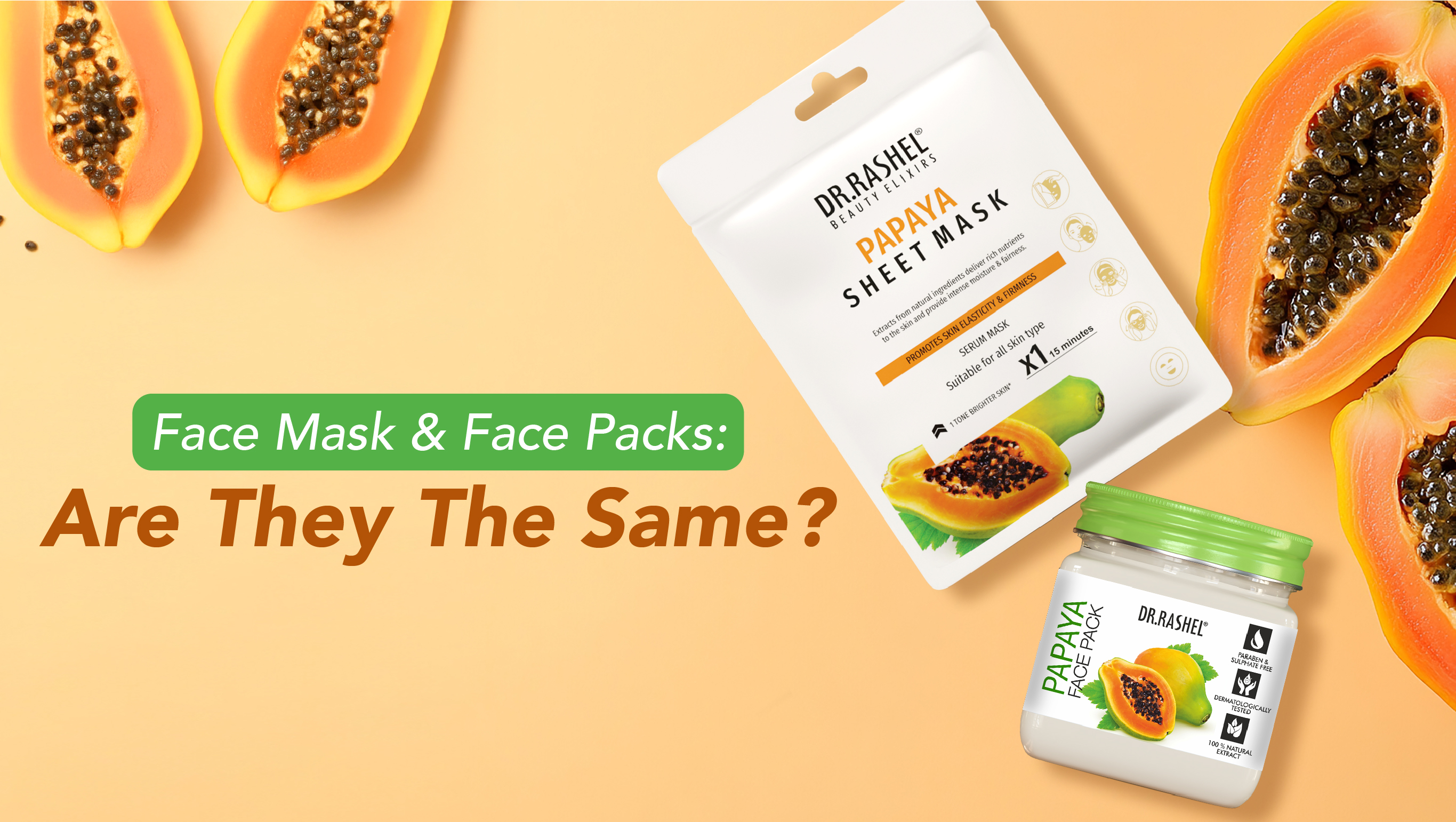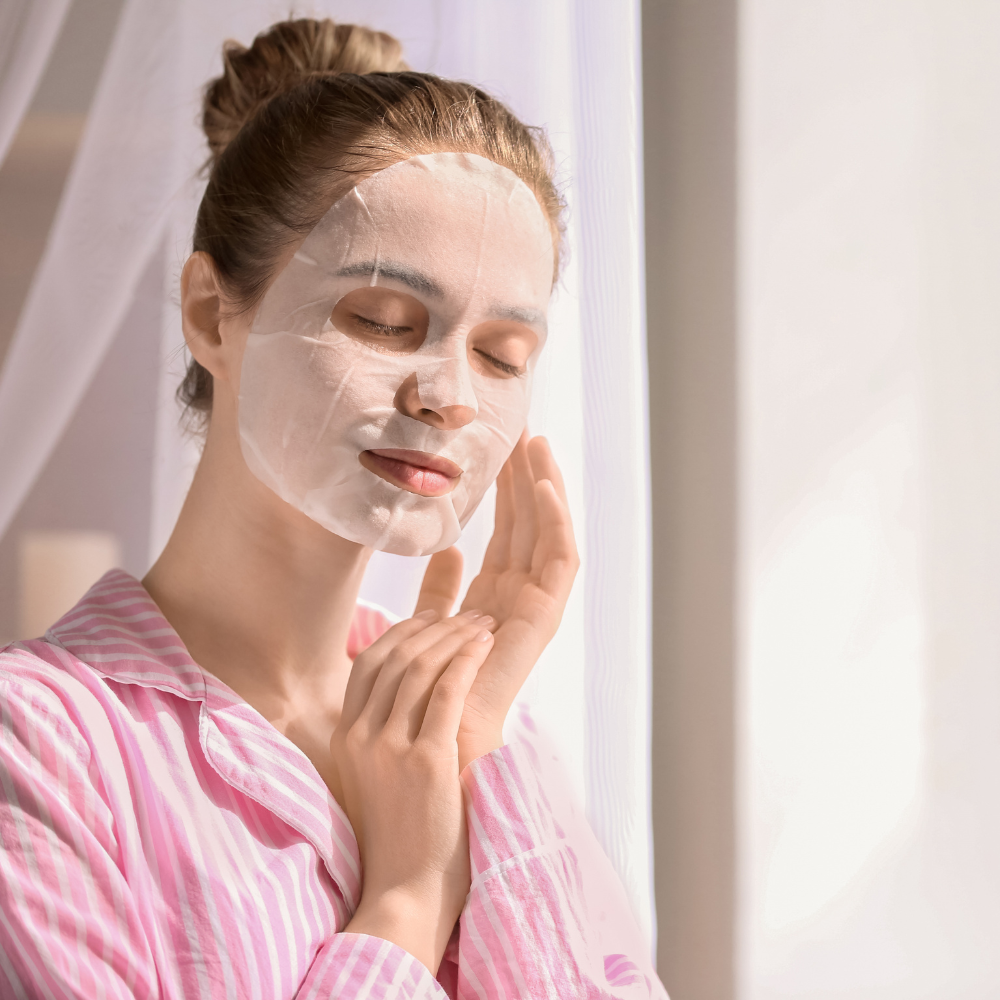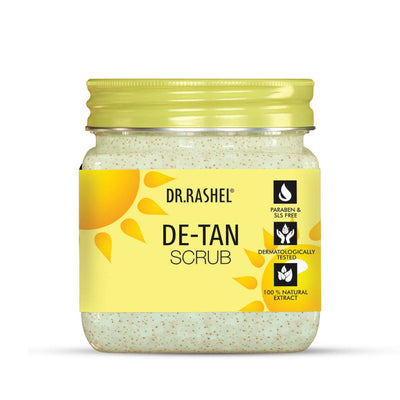
Table of Contents
- What Is A Face Mask?
- Benefits Of A Face Mask
- What Is A Face Pack?
- Benefits Of A Face Pack
- Difference Between A Face Mask And A Face Pack
- Which One To Choose, Face Mask Or Face Pack?
- Quickly explained
- FAQ’s
We all think that Face Masks and Face Packs are both the same thing, but they're not! And the difference between them is not as subtle as you may believe it is. Face masks are sheet-like products soaked in a potent serum whereas Face packs are thick paste that you apply on the face. Though both help the skin achieve a healthy glow it is necessary we understand how each is benefitting for us.
So let's unravel the difference between face pack and face mask from the POV of use, benefits and suitability.

What Is A Face Mask?
A face mask is a thin sheet that is soaked in a serum or a liquid solution made with skin-enhancing ingredients. It is shaped in a way it covers your face excluding your eyes and lips. Face masks are placed on the face and left for a specific amount of time before taking it off. They are designed to target skin concerns like dehydration, dullness, rough skin or aging.
Benefits Of A Face Mask
Provides Hydration
Face masks provide targeted treatment for skin concerns and hydrate and brighten dull skin. Face Masks have hydrating ingredients like hyaluronic acid, aloe vera or glycerin that restore and retain moisture leaving the skin soft and plump.
Keeps Skin Young
Face masks promote collagen production that improve skin elasticity and firmness. It also reduces the appearance of fine lines and wrinkles.They are infused with anti-aging ingredients that penetrate into the skin and improve the overall texture of your skin making it look more youthful.
Spa At Home
Face masks are excellent at intensely hydrating the skin, locking in moisture and combating dryness. They remove excess oil, dirt and impurities from the skin that minimizes large pores. They are also very easy to use and give a relaxing spa effect at home.

What Is A Face Pack?
A face pack is a dense and thick paste that is applied on the face and rinsed off. They are made from natural ingredients like fruits or clay and help deeply nourish the skin. Face masks absorb excess oil from the skin and unclog your pores. The primary purpose of a face pack is to tighten the pores and rejuvenate the skin.
Benefits Of A Face Pack
Cleanses & Exfoliates
Face packs have cleansing properties that deeply cleanse oil, dirt and pollutants leaving it refreshed. They also exfoliate the accumulated dead skin and impurities from the skin revealing a brighter complexion.
Provides Nourishment
The ingredients in face packs help reduce dullness, uneven skin tone and pigmentation while being extremely nourishing. They also detoxify the skin from impurities and promote a fresher looking skin. They deliver essential nutrients that hydrate the skin and improve its overall health and appearance.
Tightens And Firms Skin
Face packs remove all impurities from the skin which clears up the pores and minimizes them. They further tighten the pores to reveal a smoother refined look. Also it targets sagging skin and makes it look firm and lifted.
Difference Between A Face Mask And A Face Pack
| Factors |
Face Mask |
Face Pack |
|
Purpose |
They are used for many skin concerns and formulated to deliver instant results. |
They are intensive treatments focused on nourishment and treatment. |
|
Benefit |
They are designed to provide revitalized skin, minimize pores and hydrated skin instantly. |
They are targeted towards long-term concerns as part of a consistent routine. |
|
Ingredients |
Face Masks include hydrating, brightening or calming agents such as hyaluronic acid, vitamin C or green tea. |
Face Packs include concentrated ingredients such as clays, mud or charcoal. |
|
Skin Type |
Face Masks are versatile and suit all skin types that need a refreshing boost. |
Face Packs are suitable for oily or acne prone skin that needs detoxification. |

Which One To Choose, Face Mask Or Face Pack?
Oily Skin
Oily skin produces excess sebum, has clogged pores and breakouts. For this reason Face packs are an excellent choice because they absorb excess oil and detoxify the skin. They also tighten large pores and give a smooth skin appearance.
Dry Skin
Dry skin is more flaky and rough and feels tight. A Face mask proves helpful as it focuses on hydrating and balancing the skin's moisture. Face masks contain humectants like hyaluronic acid that retain moisture and provide nourishment.
Combination Skin
Combination skin involves both dry and oily areas thus choosing a product becomes tricky. But a face mask can be a balanced option for combination skin as it provides hydration without making skin oily. Look for formulations with both oil controlling and moisturizing ingredients.
Sensitive Skin
Sensitive skin gets easily irritated, becomes red and inflamed. Face masks provide a soothing and calming effect on the skin. It is extremely soothing and provides hydration while helping reduce irritation.
Final Note
Face Masks and Face Packs may seem similar but serve different purposes and are designed to cater different skin needs. Face masks are serum-soaked sheets that provide hydration, target specific skin concerns and offer an instant refreshing boost to the skin. On the other hand, face packs are thick pastes that focus on deep cleansing, nourishment, and firming. Choosing between a face mask and a face pack depends on your skin type and specific skincare goals.
FAQ’s: Face Mask Vs Face Pack
How many minutes to leave a face mask?
Face masks are typically left on the skin for 15-20 minutes for effective results. Always follow the provided instructions on the packaging.
How to remove a face pack?
To remove a face pack, damp the pack with water to loosen it up and gently rinse it off. Avoid rubbing the skin harshly. Dry your face with a towel and follow with skincare.
Do I need to wash my face after a face mask?
No, it's not necessary to wash your face after using a face mask. Face masks are soaked with potent serum that are absorbed into the skin. If your face feels greasy or sticky then you can use water to clean your face.
What is the difference between a face mask and a face pack?
A face mask is typically formulated to address specific concerns like hydration, detoxification, or brightening and can come in forms like sheets, gels, or creams. A face pack, on the other hand, is usually a thicker paste (often clay or herbal-based) designed to deeply cleanse, tighten, and refresh the skin.
Which is better: face mask or face pack?
Neither is “better” universally - it depends on your skin type and concern. Face masks are great for hydration, anti-aging, and quick glow, while face packs work best for oil control, acne, and deep cleansing.
Can I use a face mask and a face pack together?
Yes, but not in the same session. You can alternate between a mask and a pack on different days based on your skin’s needs. Using both at once may over-treat your skin and cause dryness or irritation.
Are sheet masks considered face masks or face packs?
Sheet masks fall under the “face mask” category. They are pre-soaked in serums and designed for quick hydration and glow, unlike traditional face packs which are thicker pastes that need to be applied and washed off.
Can a face pack be used daily like a face mask?
No, face packs are usually more intense and should be used only 1–2 times a week. Daily use may strip your skin or cause sensitivity. Gentle sheet masks, however, can be used more frequently as they focus on hydration.
Is a clay mask the same as a face pack?
Clay masks are a type of face pack made with ingredients like kaolin or bentonite clay. They help absorb excess oil and detoxify pores, but unlike hydrating masks, they’re best for oily or acne-prone skin.
How often should I use a face mask vs a face pack?
Face masks like hydrating sheets or sleeping masks can be used 2–3 times a week, while face packs are better once a week for deep cleansing or brightening. Always adjust frequency based on your skin type and concern.
Do face masks work better before or after a facial pack treatment?
It’s better to use them on separate occasions. A face pack deeply cleanses and treats, while a mask hydrates and refreshes. Layering both in one sitting may overwhelm your skin, so alternate them instead.
Can I sleep with a face mask or face pack on overnight?
Only sleeping masks are designed for overnight use. Regular face masks and packs should be washed off as directed, since leaving them on too long may dry out your skin or cause breakouts.
Should I moisturize after using a face mask or a face pack?
Yes, always. Both masks and packs can leave your skin freshly cleansed and treated, but sealing in the benefits with a moisturizer helps lock in hydration and keeps your skin barrier strong.







